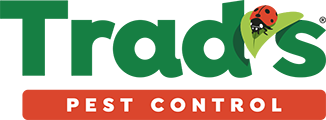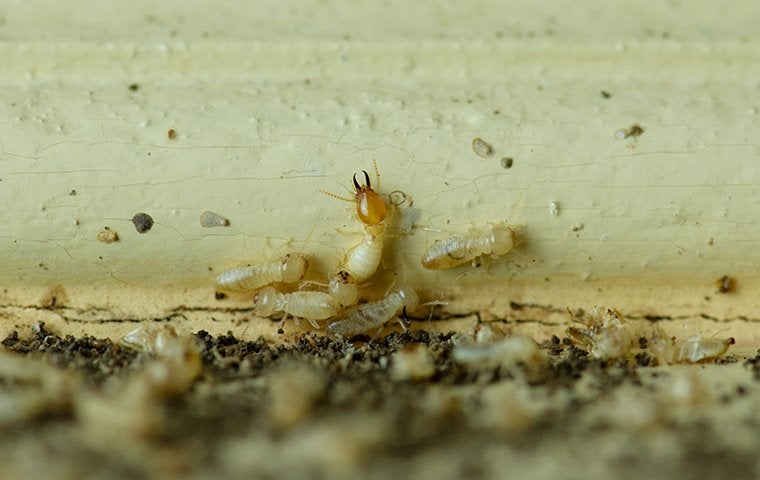Your home is an investment, and to get into a place you can call your own, is the result of hard work and sacrifice. When you purchase your home, you intend to keep it in the best shape possible because it is an investment in the future. Hopefully, if you sell the house in the future, you can make a significant profit. However, if the home develops structural issues, it will require costly repairs before you can sell it and erase any potential profit.
One Florida insect that can cause structural damage to your Jacksonville home is termites. To prevent costly repairs and loss of potential profit, you need the best pest control in Jacksonville, Trad’s Pest Control. We have over fifty years of experience solving pest problems in the Jacksonville area.
Why Do They Call Termites Silent Destroyers?
Unlike spiders, flies, cockroaches, and other Florida bugs, it is rare to see termites in your home. Because we don’t live in the attic, crawlspace, or inside walls, we don’t see termites in their natural environments. Also, termites work inside the wood, chewing away as they create nests and feed their young.
Three Florida termite species invade Jacksonville homes: drywood, eastern subterranean, and Formosan termites. Drywood termites infest the wood found in attics, while eastern subterranean and Formosan termites eat moist wood found in crawlspaces and around leaky pipes inside walls.
Four Termite Warning Signs Every Homeowner Ought To Know
Although termites in Florida work in hidden locations, the following are signs of their presence in a Jacksonville home:
- Warping doors or window frames
- Blistering paint
- Mud tubes on the home’s exterior
- Discarded wings on window sills
Other signs pointing to a termite infestation are wood that sounds hollow when tapped, crinkling sounds when walking over wood floors, darkening of wood structures, and sawdust-looking piles outside tiny holes in wood.
Another sign of termites occurs in the spring after a period of heavy rain when reproductive subterranean and Formosan termites swarm out from the nest to create new nests nearby. Reproductive drywood termite swarms occur in the late summer or early fall. When termites are swarming, you will notice them around exterior lights. Although it may be challenging to determine if the swarm consists of ants or termites, consider the swarm as an early warning sign for termites.
I Found Termite Warning Signs, Now What?
When you see signs of termites, the first action is to call the best exterminator for termites near you, Trad’s Pest Control. In addition to scheduling our professional pest control team, take the following actions:
- Remove logs, tree stumps, and wood scraps from the property.
- Replace rotted wood on the property and in the house.
- Apply metal flashing to wood that touches the ground.
- Divert water away from the home’s foundation.
- Dehumidify the crawlspace and attic.
- Seal cracks that lead into the house.
- Store firewood at least 20 feet from the structure.
- Create a one-inch gap between the soil and wood parts of the house.
The primary nest of subterranean and Formosan termites is usually outside the home; eliminating rotting wood in the yard will remove the lifeline satellite nests. Removal of high-moisture areas makes it difficult for the subterranean and Formosan termites to survive.
Do I Really Need Professional Termite Control?
Knowing the types of termites in Florida invading your Jacksonville home is crucial in determining the proper treatment method. Trad’s Pest Control experts determine the treatment area and the kind of remedy based on the termite species. Monitoring services are crucial to the ongoing success of the treatments.
Contact us today and set up an inspection of your Jacksonville property. We will identify the termite species, create a treatment and prevention strategy, and, upon your approval, proceed to eliminate the termites from your property. Don’t risk your investment; protect your home against termites.

